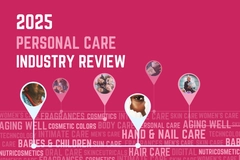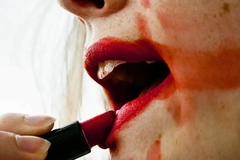Philippines watchdog group finds banned preservatives in baby wipes from China
28 May 2024 --- The EcoWaste Coalition warns against the continued sale of imported baby wipes containing preservatives banned by the Philippine Food and Drug Administration (FDA) due to health risks.
During recent test purchases in Calapan City, Mindoro Oriental, the toxic watchdog group discovered five unapproved baby wipe products that contained isobutylparaben, methylchloroisothiazolinone (MCI) and methylisothiazolinone (MIT).
The global baby care products market is estimated to reach US$25.4 billion by 2028, according to Lubrizol Life Science.
Health harming preservatives
The FDA says isobutylparaben, banned since 2016, is a preservative that prevents microbial and fungal growth. The endocrine-disrupting chemical was prohibited along with benzylparaben, isopropylparaben, pentylparaben and phenylparaben.
The agency has also banned MCI and MIT in leave-on cosmetic products since 2018.
.jpg) Watch our video interview with Innova Market Insights on global trends in baby care.MCI and MIT are known to cause skin redness, itching and blistering.
Watch our video interview with Innova Market Insights on global trends in baby care.MCI and MIT are known to cause skin redness, itching and blistering.
Under the ASEAN Cosmetic Directive and the European Cosmetic Products Regulation, MCI and MIT and isobutylparaben are classified as banned cosmetic ingredients, says the EcoWaste Coalition.
The EcoWaste Coalition tested five brand products this week, including one with isobutylparaben (Sensitive Comsoft Baby with Aloe Vera Wipes) and four with MCI or MIT (two varieties of Dong Bang Baby Wipes, Lasam’s Bonito Bebe Baby Wipes and Baby Wipes Wet Towels).
However, butylparaben and propylparaben are permitted in cosmetics, except leave-on products intended for use on children under three diaper areas. Comsoft Baby with Aloe Vera Wipes also contains these ingredients.
Manufacturing disobedience
These products, which are not old stock and are primarily labeled “made in China,” range in price from ₱25 to ₱49.75 (US$0.4 to US$0.9) per pack. The Baby Wipes Wet Towels product was manufactured in 2024 and will expire in 2027, while the other four were produced in 2023 and will expire in 2026.
The watchdog underscores the manufacturing time indicates the products were recently imported despite the bans.
Meanwhile, the WHO notes that MCI and MIT can cause contact dermatitis, a skin disorder characterized by redness, itching and vesiculation due to contact with environmental substances that cause an allergic or irritant response.
The EcoWaste Coalition appeals to manufacturers, importers, distributors and retailers to ensure that wet wipes and other cosmetic products containing banned ingredients are not produced or sold to the public.
In previous updates, the watchdog flagged skin-lightening products containing mercury following a series of test buys conducted in Pasay City, the Philippines.
By Venya Patel













